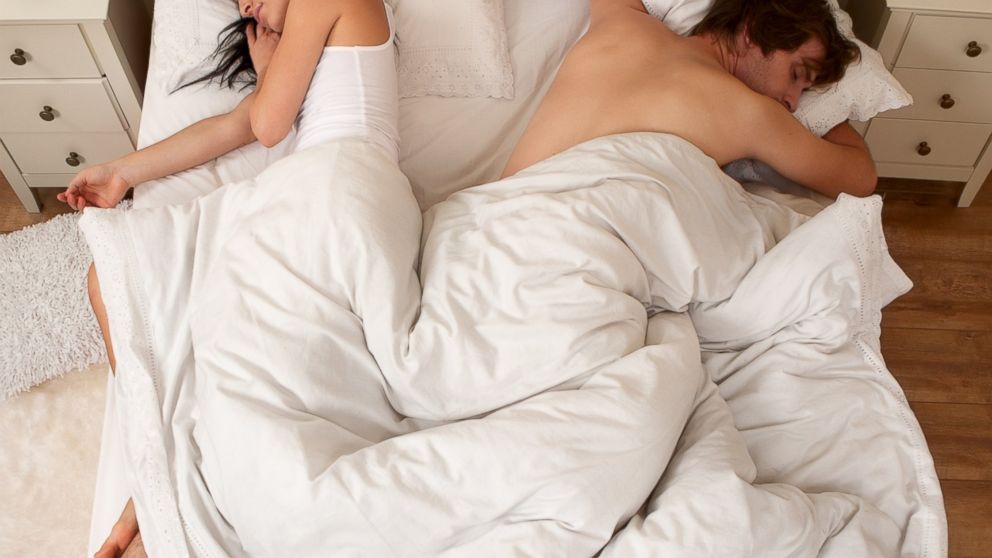10 Sleep Compatibility Problems, Solved
How to deal with your snoring, cover-hogging bedfellow.

— -- intro: A good night's rest can be hard enough to get on your own. Add in the challenge of sleeping with a partner who snores, hogs the covers, or can only nod off to the sound of the nightly news—or has issues with your sleep patterns and needs—and it's no wonder so many partners are sleep-deprived. In fact, about 25% of American couples retreat to separate sleeping quarters, according to the National Sleep Foundation. That can be an effective solution for some spouses, but it can also take a toll on your bond and intimacy, says Michael Breus, PhD, clinical psychologist and sleep specialist and author of The Sleep Doctor's Diet Plan. If his and hers beds don't appeal to you, you've still got options. Read on for easy, expert-backed ways to navigate your different sleep styles and score the snooze time you both deserve.
Best and Worst Foods for Sleep
quicklist: 1category: 10 Sleep Compatibility Problems, Solvedtitle: Your partner's snoring leaves you staring at the ceilingurl:text: About 37 million adults snore regularly, according to the National Sleep Foundation, resulting in poor snooze quality for their bedmates and themselves. Men are more likely to saw away, and snoring tends to worsen with age. "The sound comes from vibrations made as you breathe through narrowed airways while sleeping," says Breus. Congestion is often a trigger; so is drinking alcohol close to bedtime. Even sleeping on your back can be to blame, which is why nonsnoring partners often roll (or push!) the snorer over to get some peace and quiet. If addressing these issues doesn't help, have your partner check in with a sleep doctor. Snoring can be a sign of sleep apnea, a serious but treatable condition that causes breathing to stop several times per night. In the meantime, Breus suggests the snore-free partner drown out the buzz by surrounding their ears with a wall of pillows. "The sound will bounce back in the other direction, reducing the noise enough so you're more likely to drift off," he says.
How Much Sleep Do You REALLY Need?
quicklist: 2category: 10 Sleep Compatibility Problems, Solvedtitle: You can't agree on room temperatureurl:text: The optimum temperature for sleep ranges from 68 to 72 degrees Fahrenheit, says Breus. But that won't persuade a partner who craves a toasty-warm bedroom to stop secretly hiking the thermostat, nor will it stop a chill-loving spouse from throwing open the window. Call a compromise: Pick a temperature between your two preferences. The person who likes it warmer has the option of putting on another blanket or thicker pajamas, while the cold-preferring partner can sleep outside the sheets or duvet, suggests Breus. Upgrading to a bigger bed might also help. "A larger bed means more room, so the person who wants it cooler isn't as affected by the other's body heat," says Janet Kennedy, Ph.D., clinical psychologist and sleep specialist in New York City and author of The Essential Guide to Sleep for Your Baby and You.




